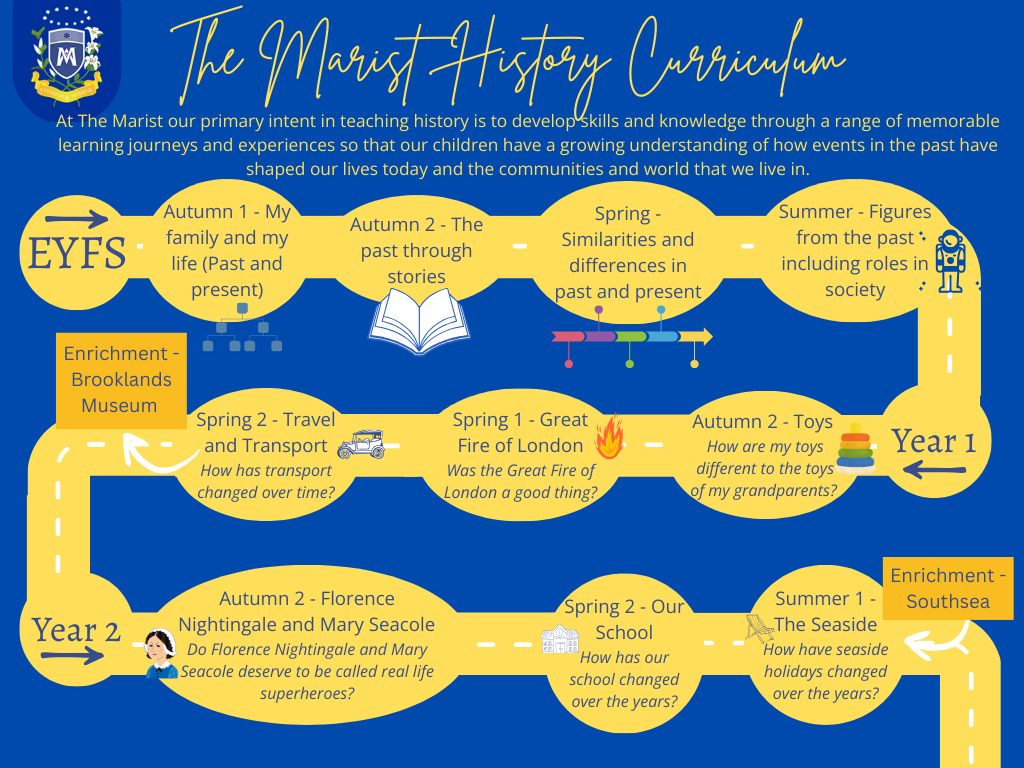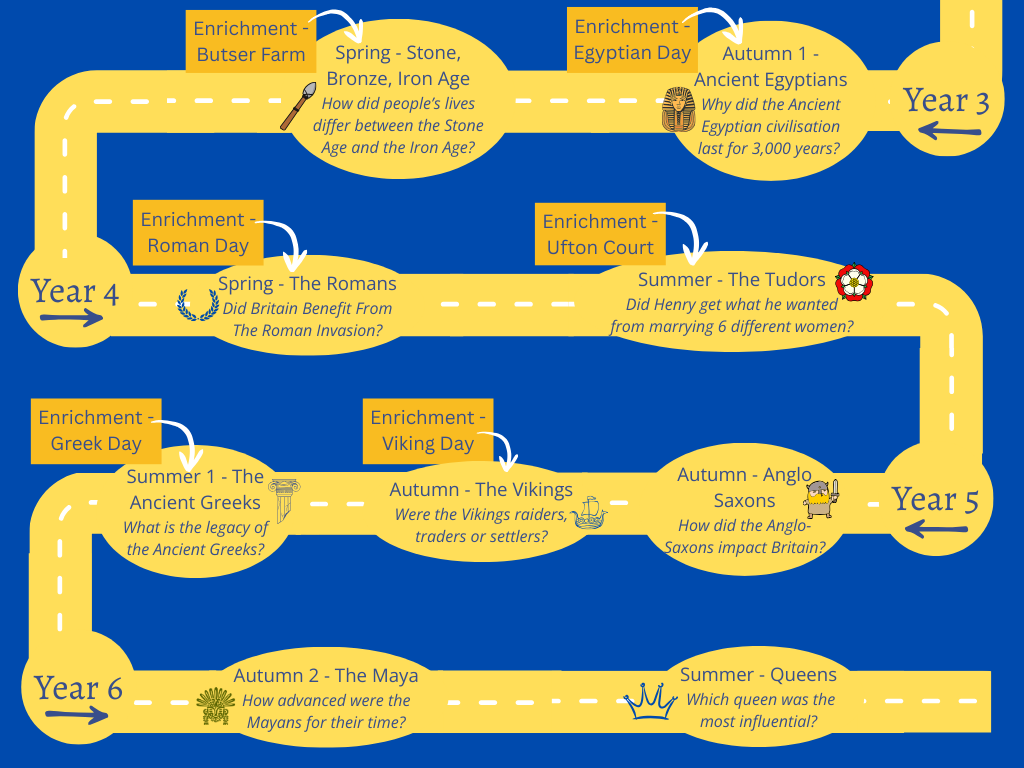History
History: Our Intent, Approach and Implementation


At The Marist our primary intent in teaching history is to develop skills and knowledge through a range of memorable learning journeys and experiences so that our children have a growing understanding of how events in the past have shaped our lives today and the communities and world that we live in.
We aim to enable the children to be active participants in history by exposing them to areas of the past that will particularly capture their imagination, either because of a local link, or because of their significance to the history of our nation or the world. Studying the lives of people in the past helps develop empathy and insight. We build on key themes across the school to strengthen their understanding of concept and to build a sound knowledge base for them to build on further as they travel onwards through life.
We want children to view history as a way of understanding the future – to feel empowered to act as historians by asking questions and examining sources – rather than as a subject where we google the answers. We encourage children to extend their knowledge by undertaking their own research, and by beginning to develop their own explanations and theories with evidence. We also want them to develop confidence in making links across periods, or between cultures, whilst developing a clear understanding of chronology through learning key dates in British history. We strengthen this by embedding history across our curriculum – for instance giving a historical dimension to scientific discussions about invention, or ensuring that a sense of the historical period underpins our approach to literature or British values.
Our approach to teaching history is rooted in empowering pupils to take ownership of their learning. We use knowledge organisers to help students scaffold their understanding and ensure that essential background information is accessible to all. To deepen their engagement, we pose thought-provoking questions that encourage research both in class and through homework projects. Pupils then share their findings through presentations, fostering confidence and reinforcing their historical knowledge by teaching others.
We enrich this experience through the use of local experts, such as archaeologists from Woking Palace, who provide unique insights into regional history. Outreach programmes and resource boxes from the Surrey History Centre and Chertsey Museum offer hands-on learning opportunities that bring the past to life. Pupils also explore our own school archives, including log books and historical documents, to connect with the heritage of their immediate environment. Visits to the local church further deepen their understanding of community history and its role in shaping local identity.
To inspire and support learning, we plan visits and welcome visitors whose expertise brings historical topics to life. We also involve local experts in immersive activities where pupils interact with historical characters to develop empathy, curiosity, and a deeper understanding of the past through role play and inquiry.
Our curriculum is underpinned by British Values, with a particular emphasis on democracy and how it has evolved over time. We celebrate significant events and anniversaries to help pupils make meaningful connections between the past and the present. Through the study of key historical figures and events, pupils explore their lasting impact on the way we live today. A focus on ancient and modern civilisations allows pupils to compare cultures, innovations, and societal structures across time. As a faith school, we also place a strong emphasis on the role of religion in history—examining how religious beliefs and institutions have evolved and influenced communities, governance, and global events throughout the ages.
Oracy is woven throughout our history curriculum, providing pupils with opportunities to discuss and debate the connections between yesterday and today. Using prompts such as “What if?”, “Why?”, and “Explain,” pupils are encouraged to think critically, analyse sources, and synthesise ideas. They compare actions, events, and themes from the past to current issues, developing their ability to articulate informed viewpoints and engage in meaningful dialogue. This not only strengthens historical understanding but also builds confidence, communication skills, and thoughtful citizenship.
